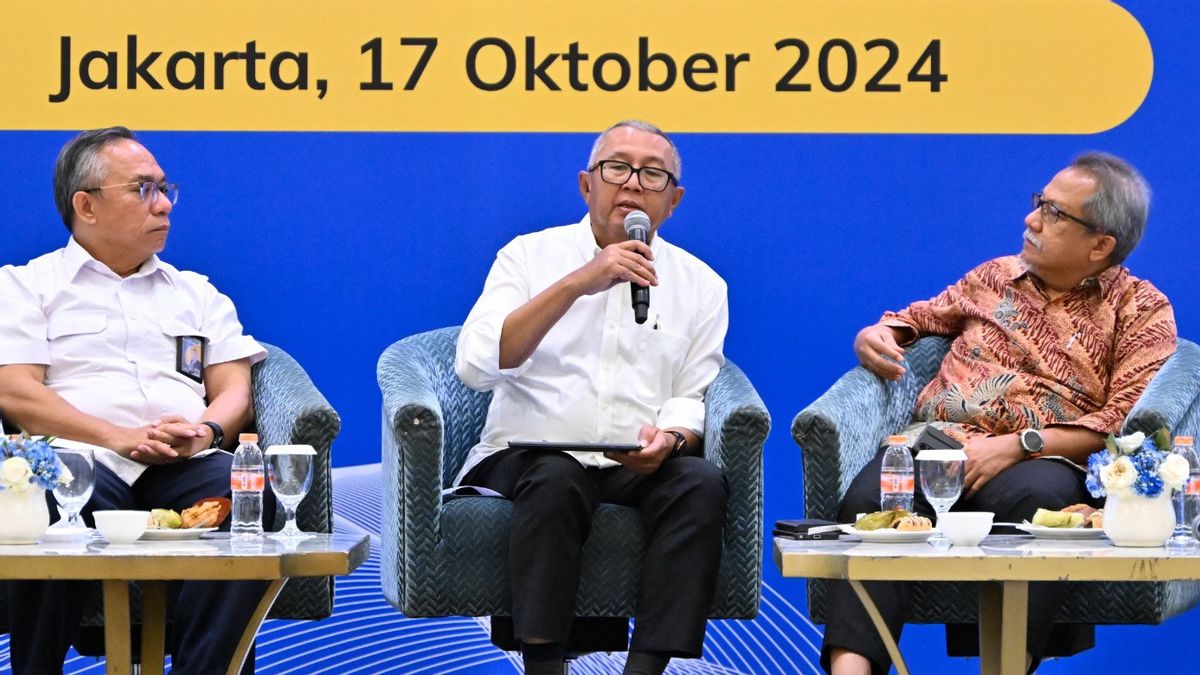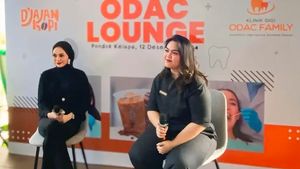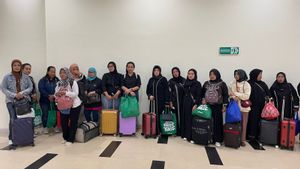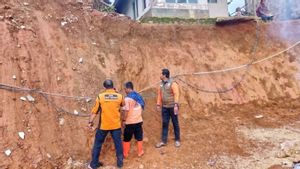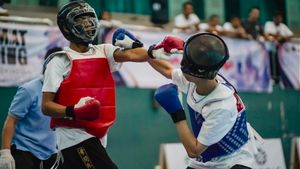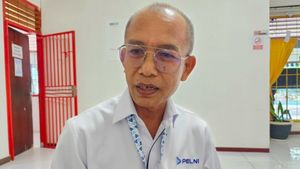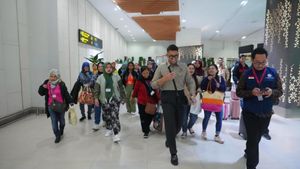JAKARTA - The Ministry of Public Works and Public Housing (PUPR) continues to strengthen its commitment to carrying out sustainable infrastructure development. This commitment is realized by encouraging the optimization of the use of environmentally friendly cement in infrastructure development.
In a workshop with the theme Optimizing the Use of Environmentally Friendly Cement, Plt. Director of Construction Services Development, Dicki Rinaldi emphasized the importance of using environmentally friendly materials, especially Non Ordinary Portland Cement or Non-OPC cement, as part of efforts to support sustainable infrastructure development. The government is very focused on accelerating infrastructure development programs that are not only a stimulus for the national economy but also have a more controlled environmental impact.
"We must ensure that the infrastructure development that we carry out pays attention to the balance between economic growth and the capacity to support the environment," said Dicki Rinaldi in his remarks at the opening of a workshop at the Darmawangsa Hotel & Convention Center Tribrata, Jakarta, on Thursday, October 17.
Dicki Rinaldi added that the use of Non-OPC cement, which has advantages from the technical, economic and environmental aspects, must be optimized in every development project under the Ministry of PUPR.
In an effort to support this, the Ministry of PUPR has issued various regulations, such as the Circular Letter of the Minister of PUPR No. 07/2016 concerning Guidelines for Procedures for Determination of Normal Beton Mixed and Instruction of the Minister of PUPR No. 04/IN/M/2020 concerning the Use of Non-OPC Semen in construction work. In addition, the Ministry of PUPR is also trying to adjust the technical specifications requirements for each type of construction building, both in the roads and bridges, water resources as well as settlements and housing.
Workshop Discussion Optimizing the Use of Environmentally Friendly Semen is organized by the Ministry of PUPR and supported by the Indonesian Semen Association (ASI). Present as resource persons for the Director of Construction Sustainability and all Technical Development Directorates at the Ministry of PUPR, Professor of the Faculty of Civil Engineering and the ITB Environment, Iswandi Imran and the Chair of breast milk, Lilik Unggul Raharjo. This activity is expected to be a medium for conveying information, especially to Consultants for Designation regarding the technical advantages of Non-OPC cement and its environmentally friendly nature.
Professor of the Faculty of Civil Engineering and the ITB Environment, Iswandi Imran said that the development of Non-OPC environmentally friendly cement in Indonesia is quite good. Currently, there are various types of environmentally friendly cement that can be adapted to development needs, such as low heat, high durability, high performance, high strength, and others.
"The standards and regulations for environmentally friendly cement in Indonesia are also complete, both in terms of SNI materials, as well as SNI for the design. This has all been accommodated. Even earlier, it was also conveyed by the fathers and mothers of PUPR, the specifications have also adopted these things. So it's just a matter of how we consistently implement it in the construction we are handling," said Iswandi Imran.
Meanwhile, the Chair of breast milk, Lilik Unggul Raharjo explained that Non-OPC cement has many advantages, such as lower carbon emissions and minimizing the use of natural resources. In addition, Non-OPC cement also focuses on the quality and sustainability of construction, including strength and durability. Non-OPC Cement has also been used in various mega projects in Indonesia, such as the Suramadu Bridge, Bali Mandara Toll Road, Patimban Port, and the Jakarta-Bandung High Speed Rail Project.
Regarding supply, Lilik Unggul Raharjo said that the total capacity of Non-OPC cement in Indonesia reached around 93 million tons.
"Supply mapping, starting from the end of Sumatra to Papua, all of them have produced PCC (Portland Composite Cement). Then several breast milk member factories such as the GIS factory in Narogong have produced full Non-OPC, such as PCC, PPC (Portland Pozolan Cement), slag, then also hidraulis. Likewise, factories in Tuban and Tonasa. Other members of associations have also done it," said Lilik Unggul Raharjo.
SEE ALSO:
Separately, the President Director of GIS, Donny Arsal, positively welcomed the efforts of the Ministry of PUPR to optimize the use of environmentally friendly cement in construction work. As a market leader in the country's cement industry, SIG has a variety of innovations in low-carbon green cement products as a form of responsibility and contribution from the Company in realizing sustainable construction in Indonesia.
"The GIS green Cement is the best solution for low-carbon environmentally friendly construction and can be a major choice for the government, as well as property developers to increase their advantages and competitiveness. With an extensive operational network, GIS is ready to support development to remote areas throughout Indonesia," said Donny Arsal.
Donny Arsal added that GIS is not complacent and does not stop at green cement innovation. As part of the Company's transformation journey, SIG presents an interlock brick precise product for effective, efficient, earthquake-friendly, and earthquake-friendly housing construction solutions. The use of the trigger clock also makes construction duration faster, and look modern.
"The internlock brick precise product has been applied to the example of type 36 environmentally friendly site occupancy in IKN (Nusantara Capital) which was built within 15 days. This innovation is expected to support the government in providing habitable houses for the community, in order to overcome housing backlogs in Indonesia," said Donny Arsal.
The English, Chinese, Japanese, Arabic, and French versions are automatically generated by the AI. So there may still be inaccuracies in translating, please always see Indonesian as our main language. (system supported by DigitalSiber.id)
